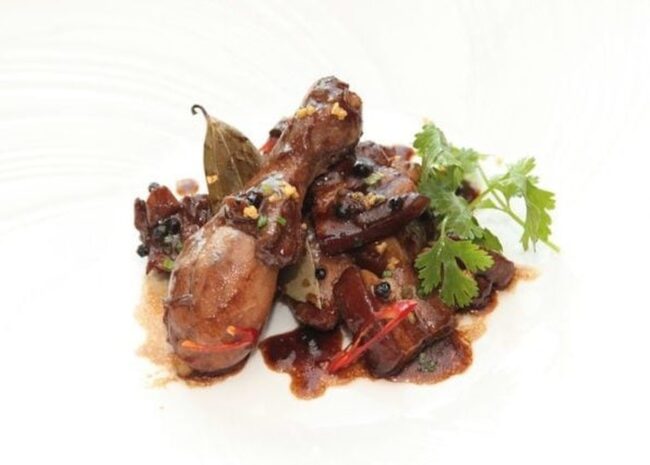Bold Adobo Seasoning Substitutes for Rich Flavor
Adobo seasoning enhances Latin American cuisine with its savory, smoky, and earthy flavors.
When a replacement is needed, spice blends, dried herbs, or homemade mixes can achieve a comparable depth.
Some alternatives amplify the garlic and pepper notes, while others introduce subtle warmth from cumin and oregano.
Choosing a swap depends on the intensity of seasoning desired.
No matter the choice, dishes remain rich and full of character.
The Story of Adobo Seasoning
An essential element of Latin American cuisine, adobo seasoning showcases a rich history influenced by Spanish colonization.
This flavorful spice blend was originally created to preserve meats and enhance their taste.
Ingredients like garlic, oregano, paprika, black pepper, salt, onion, and cumin come together to form this distinctive mix that has remained largely unchanged over generations.
Over time, adobo has adapted by incorporating local ingredients to meet regional tastes.
Today’s kitchens feature it in grilled meats as well as hearty stews and soups across Latin America.
Understanding its origins reveals how deeply rooted this seasoning is in culinary tradition while still appealing to modern palates.
Best Substitutes for Adobo Seasoning
Cajun seasoning provides a wonderful mix of spices like pepper, cumin, and oregano.
This blend complements many dishes and can be easily found in most grocery stores.
Creole seasoning offers a milder taste while still sharing similar spices with adobo, making it ideal for recipes that benefit from subtle flavors like chili con carne.
Chili powder stands as another popular choice; its ingredients include paprika and garlic powder, offering an accessible alternative with less intensity than adobo.
For those who enjoy customizing their flavors, blending cumin, oregano, paprika, garlic powder, onion powder with cayenne pepper creates a personalized mix reminiscent of traditional adobo seasoning.
Key Ingredients in Adobo Seasoning
Creating a flavorful adobo seasoning relies on using the right ingredients.
Garlic, black pepper, onion, salt, cumin, oregano, and paprika form the heart of this blend.
Each ingredient contributes to its bold taste; garlic adds an earthy richness while onion enhances flavor with sweetness.
Paprika provides a vibrant color along with sweetness that can vary from sweet to smoky depending on your choice.
Cumin brings warmth and depth that balances other flavors beautifully.
A splash of vinegar introduces a tangy note that brightens the mix and highlights all components perfectly for an authentic taste experience in your dishes.
Common Uses for Adobo Seasoning
Adobo seasoning serves as a flavorful ingredient that can elevate various recipes.
Its rich history adds depth to dishes across many cuisines.
A simple blend of dry spices like marjoram, oregano, and salt creates this versatile mix at home.
This seasoning shines when used as a marinade for meats; mixing it with vinegar or lime juice tenderizes and enhances flavor wonderfully.
Grilled or roasted meats benefit from adobo's robust crust when applied as a dry rub, making chicken, pork, and steak even more delicious.
In Latin American cooking, adobo paste becomes essential in stews and sauces; its unique taste transforms ordinary meals into something extraordinary.
Using Adobo Substitutes in Cooking
Running out of adobo seasoning doesn't have to ruin your cooking.
Several substitutes can bring similar flavors to your meals, making it easy to enjoy a tasty dish.
Chipotle peppers in adobo sauce provide a smoky touch and allow you to manage the heat based on how many you use.
Homemade spice blends work well too; mixing garlic powder, onion powder, salt, pepper, and oregano creates an excellent alternative for casseroles or frying.
For marinades that enhance meats or fish without adobo seasoning, combining citrus juice with salt and pepper offers both flavor and tenderness.
Soups and stews also welcome substitutions like chili powder or smoked paprika for that familiar taste profile while adjusting the seasoning with black pepper is always beneficial.

